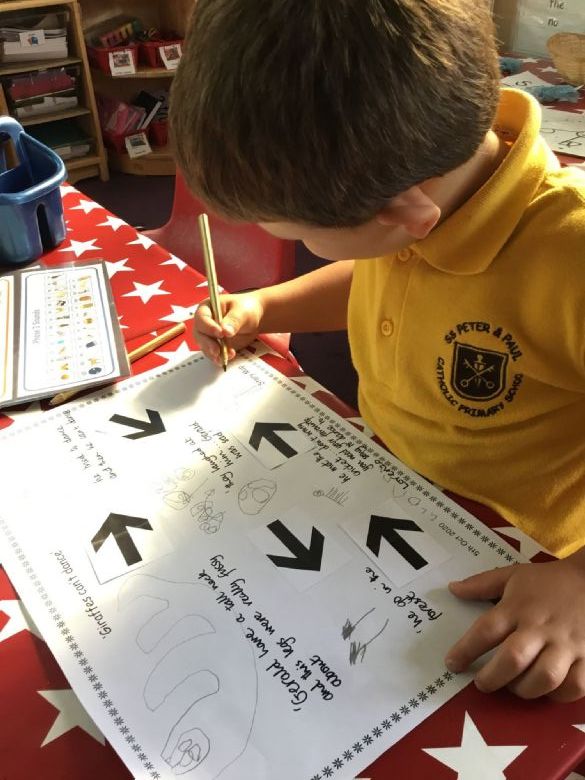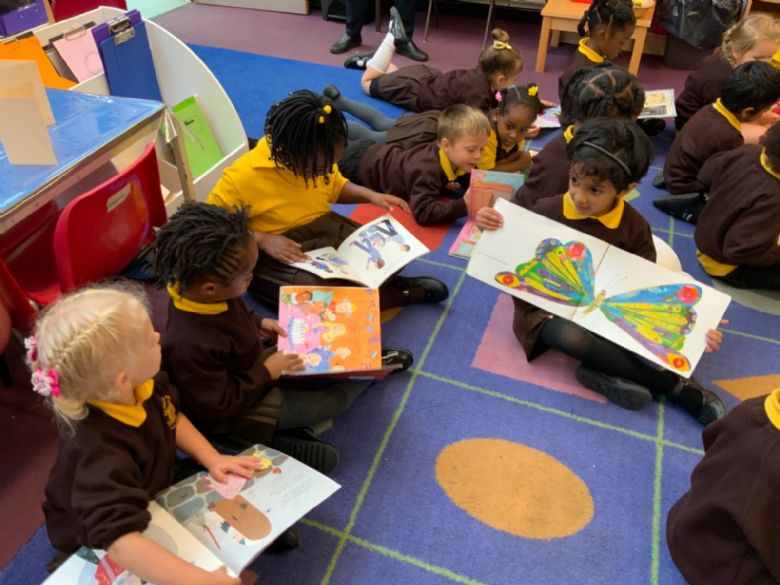English
“If you don't like to read, you haven't found the right book.”- JK Rowling
Our Intent
At SS Peter & Paul Catholic Primary School we aim to create a positive reading and writing culture in our school where both are promoted, enjoyed and considered ‘a pleasure’ for all pupils. As a school, we are aware that some of our pupil’s early language acquisition is limited and this is why we believe that providing a language rich environment, with a strong emphasis on speaking and listening is essential to the success across the curriculum.
When our children leave our school, we intend for them to be avid readers, children who read fluently and widely, and are able to express preference and opinions about the text that they read. We want them to read for pleasure, having had access to a wide range of text types, genres and authors in order for them to make informed opinions about their favourites. We intend for our children to write clearly, accurately and coherently, adapting their language and style in and for a range of context purposes and audiences. We intend for our children to acquire a wide vocabulary, a solid understanding of grammar and be able to spell new words by effectively applying the spelling patterns and rules they learn throughout their time in primary school.
The English curriculum is broad and balanced providing a secure foundation for each individual child to develop and thrive. We believe that our curriculum will give our children the knowledge and skills that they need to be confident speakers, readers and writers by the time they complete their primary education.
Our Implementation
Our English curriculum aims to immerse our children in high-quality engaging texts which are at the heart of both reading and writing at SS Peter and Paul. Our thematic approach (Discover, Explore. Enquire) links our key texts to a range of subjects creating a cross-curricular learning journey. The key texts are carefully chosen, planned and sequenced so that new knowledge and skills build on what has been taught before and towards it’s clearly defined end point. This is delivered through units from the CLPE Power of Reading (POR) and The Literacy Tree (LT) schemes. Through choosing diverse high quality text, we want pupils to develop a love of reading and gain knowledge of a range of authors and be able to understand more about the world in which they live through the knowledge they’ve gained from the texts.
Our English planning always starts with a creative hook to create an immersive environment that engages and excites the class about the text. This enables children to have discussions and explore questions or thoughts they have with their peers. Our curriculum seeks to promote high standards of language and literacy by equipping all pupils with a strong command of the spoken and written word and to develop pupil’s love of literature through widespread reading for enjoyment. We aim to ensure that all pupils:
-
read easily, fluently and with good understanding
-
develop the habit of reading widely and often, for both pleasure and information
-
acquire a wide vocabulary, an understanding of grammar and knowledge of linguistic conventions for reading, writing and spoken language
-
appreciate our rich and varied literary heritage
-
write clearly accurately and coherently, adapting their language and style in and for a range of contents, purposes and audiences
-
use discussion in order to learn;they should be able to elaborate and explain clearly their understanding and ideas
-
are competent in the arts of speaking and listening, making formal presentations, demonstrating to others and participating in debate.


